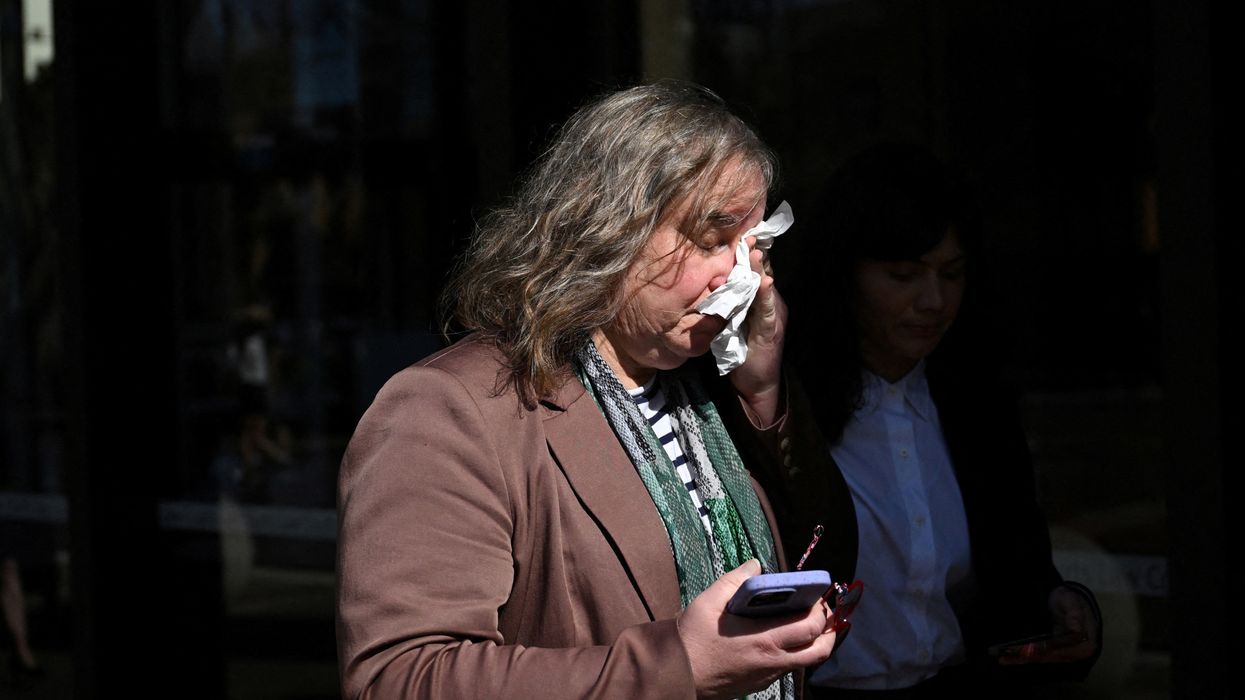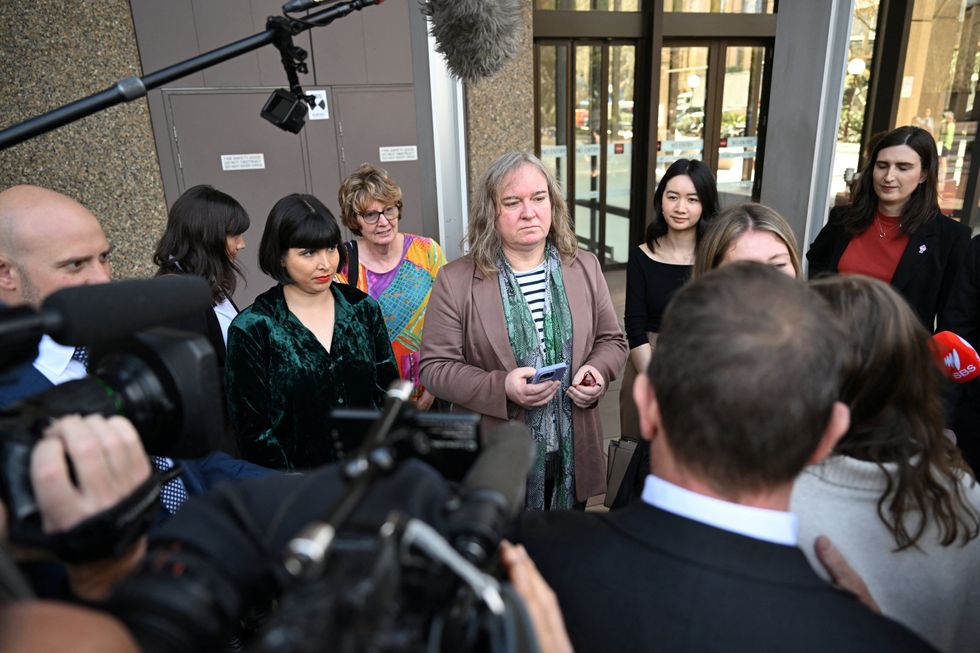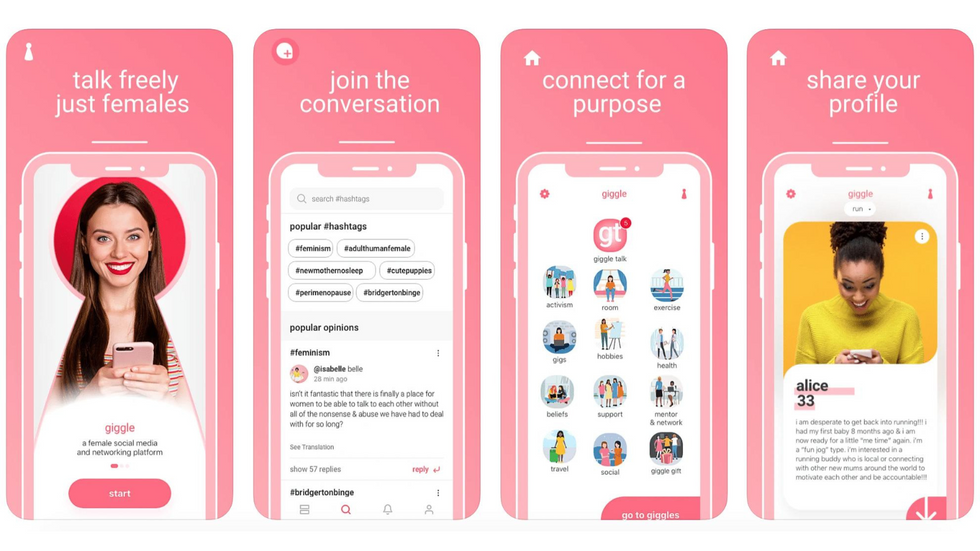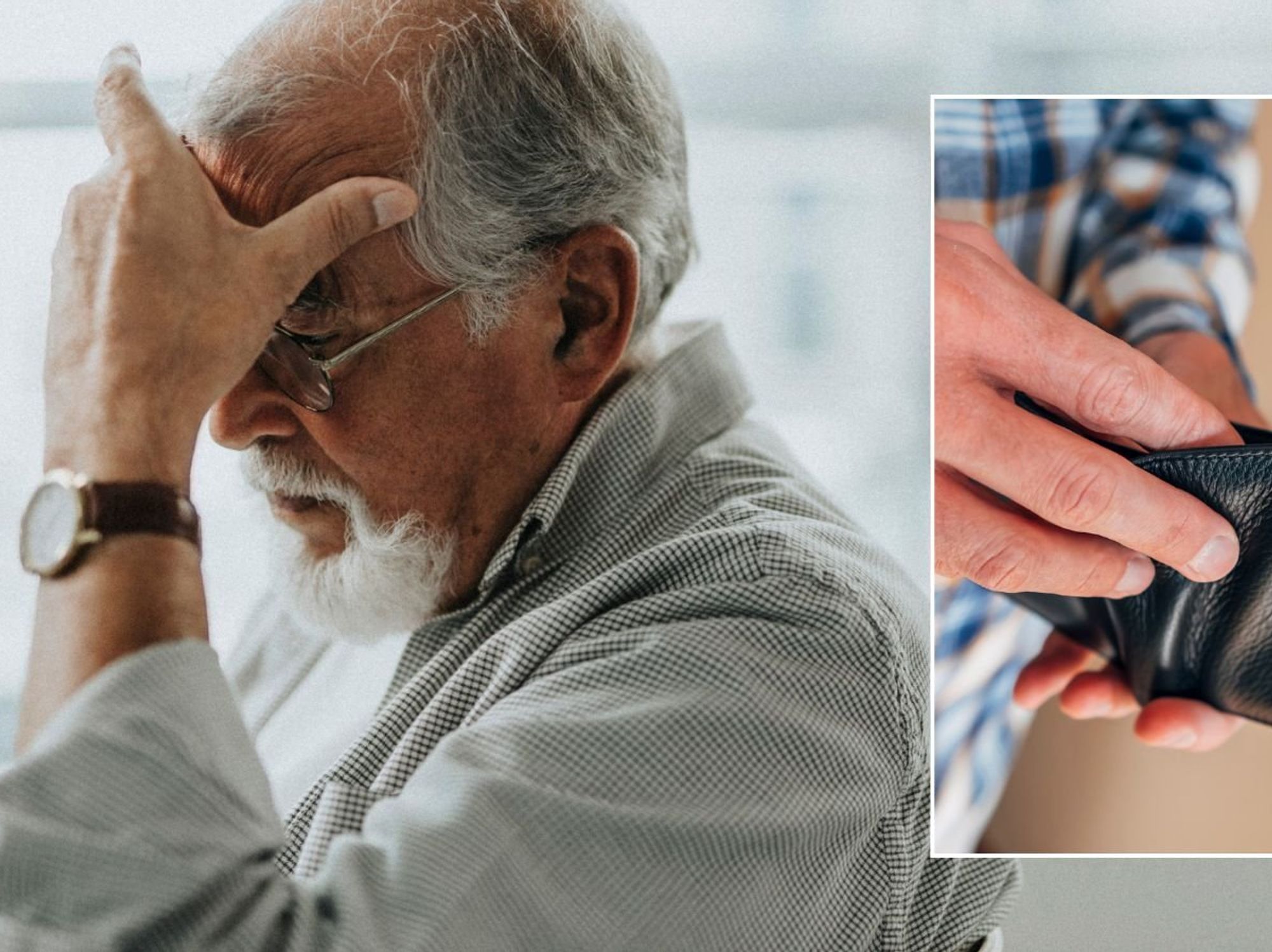Trans woman paid THOUSANDS in compensation after ban for 'women-only' app as judge rules 'sex is not biological'

Roxanne Tickle was successful in her discrimination court challenge
|Reuters

The ruling has been hailed by some as a 'great win for transgender women in Australia'
Don't Miss
Most Read
Latest
A transgender woman has won a landmark court battle - and thousands of dollars in compensation - after being banned from using a "female-only" social media platform.
Roxanne Tickle, from New South Wales in Australia, had sued "Giggle for Girls" and its gender-critical founder Sall Grover for unlawful gender discrimination after being removed from the site when uploading a photo for verification.
Tickle had maintained an account on Giggle for Girls for some seven months, but accused Grover of revoking the account after later seeing said photo and "considering her to be male".
The site runs "gender recognition software" designed to screen out men - but the ban, and Grover's "persistent misgendering" had prompted Tickle to experience "constant anxiety and occasional suicidal thoughts".

Tickle told reporters how she had been subjected to online abuse
|Reuters
Australia's second-highest court, the Federal Court, ordered Giggle for Girls to pay Tickle A$10,000 (£5,100) alongside legal costs after part of Tickle's suit was successful.
Though, Judge Robert Bromwich declined to order the firm to issue a written apology, which Tickle had pursued in court.
Bromwich said Giggle for Girls considered only sex at birth as being a valid basis on which a person may claim to be a man or woman.
Tickle had been born male, and underwent gender-affirming surgery before their birth certificate was updated.
Tickle claimed the surgery and certification update provided a legal entitlement to services meant for women, and that the ban amounted to discrimination based on gender identity.
MORE TRANS OUTRAGE WORLDWIDE:

Grover's "persistent misgendering" had prompted Tickle to experience "constant anxiety and occasional suicidal thoughts"
|Reuters
Bromwich said: "Tickle's claim of direct gender identity discrimination fails, but her claim of indirect gender identity discrimination succeeds."
The Australian Human Rights commission explains how under the country's law, "indirect discrimination" can occur when an "unreasonable rule or policy" is enforced "that is the same for everyone but has an unfair effect on people who share a particular attribute".
Outside the court, Tickle said the judge's verdict was "healing" - and recalled having received online abuse, which even included the creation of merchandise specifically to mock the situation.
Tickle said: "There is so much hate and bile cast on trans and gender diverse people simply because of who we are."

The app had been marketed as a "safe space" for "just females"
|Giggle for Girls
But Giggle for Girls founder Grover lambasted the ruling, saying: "Unfortunately, we got the judgement we anticipated. The fight for women's rights continues."
The app had been marketed as a "safe space" for "just females" - and, according to court filings, had boasted some 20,000 users in 2021 before suspending operations the next year.
Giggle for Girls is due to be relaunched soon, according to Grover.
Professor Paula Gerber, from the law faculty at Melbourne's Monash University, called the "Tickle vs Giggle" ruling a "great win for transgender women in Australia".
Gerber continued: "This case sends a clear message to all Australians that it is unlawful to treat transgender women differently from cisgender women.
"It is not lawful to make decisions about whether a person is a woman based on how feminine they appear."
Gerber's comments echo what's being touted as the crux of the outcome of the case - namely, that the court has ruled that gender is not defined by one's birth.
It effectively sets a legal example which could be cited by signatories of the Convention on the Elimination of Discrimination Against Women (Cedaw), an international treaty on women's rights.
Only five UN members have not signed this treaty - Iran, Sudan, Tonga, Somalia and the Vatican - while 189 countries have ratified it.
The outcome of the case could mean that, in future, other countries using civil law, like Germany or France, which have ratified Cedaw, could look to Tickle vs Giggle as an advisory ruling - while in Australia or countries using common law, it can be used to set legal precedent in future.










